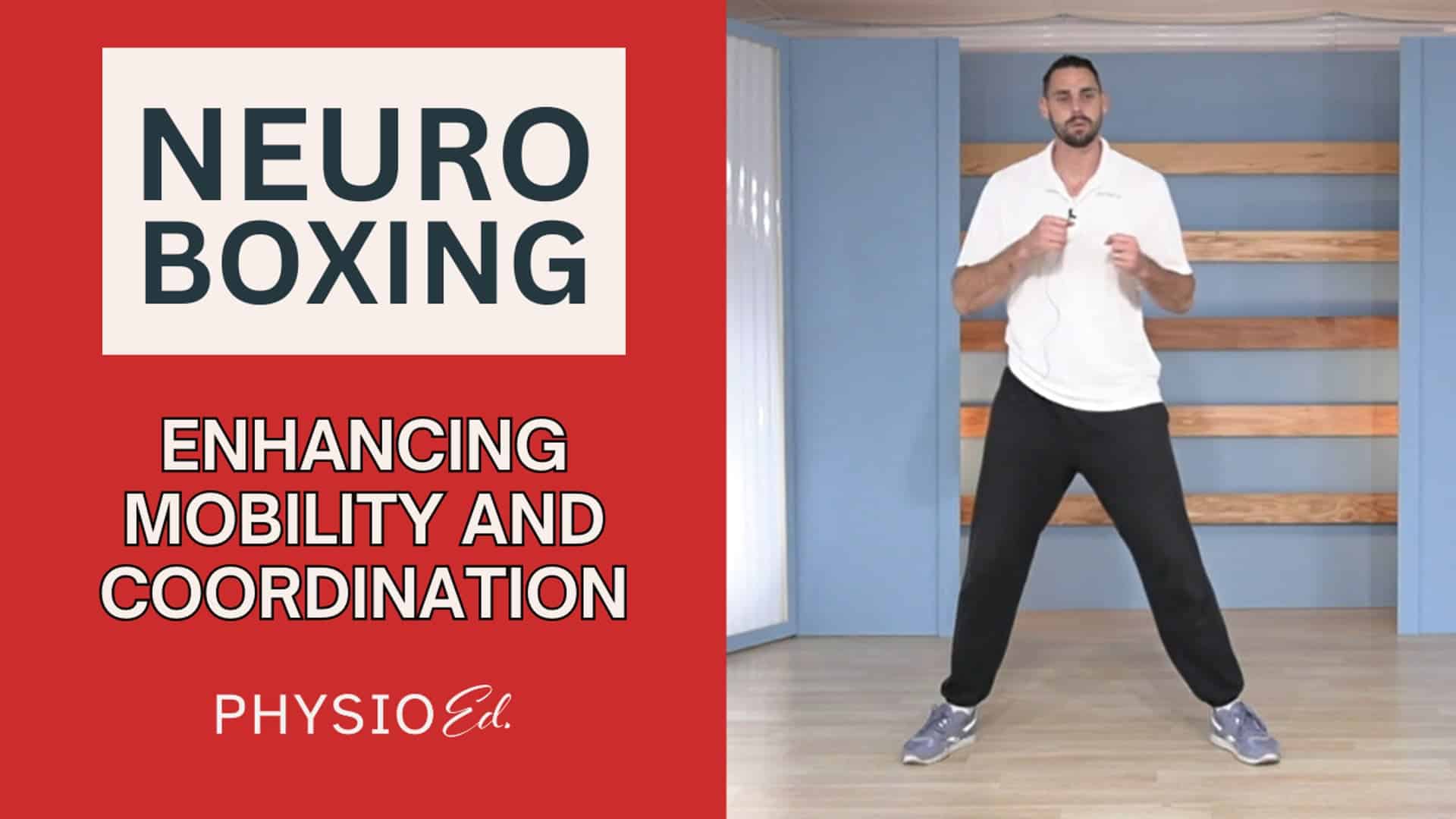Enhancing Mobility and Coordination

Enhancing Mobility and Coordination
| CLASS TYPE | Neuro Boxing |
| EQUIPMENT USED | Nothing |
| LENGTH OF CLASS | 30 Minutes |
| FITNESS LEVEL | Foundational |
| INSTRUCTOR | Dr. Jake Gladstone |
Neuro Boxing can significantly enhance mobility and coordination, crucial areas that Parkinson’s disease often impacts.
Mobility Enhancement
Mobility, a critical aspect of daily living, tends to decline in individuals with Parkinson’s due to the stiffness and slowness of movement associated with the condition. By engaging in Neuro Boxing, patients can work on increasing their range of motion and flexibility. This form of exercise emphasizes full-body movement, which can help alleviate the rigidity often experienced, making daily tasks more manageable and less exhausting. Moreover, the dynamic movements involved in boxing can lead to improved gait and posture, essential for reducing the risk of falls and enhancing overall quality of life.
Coordination and Balance
Another focal point of Neuro Boxing is the enhancement of coordination and balance. Parkinson’s disease challenges the body’s ability to perform smooth, controlled movements, leading to a higher risk of falls and injuries. Neuro Boxing provides a structured environment where you can safely challenge your balance and coordination. The sport requires precise, controlled movements and quick reflexes, which can help retrain the brain’s neural pathways, improving your ability to perform coordinated movements. Over time, this training can contribute to better stability, reduced fall risk, and increased confidence in performing everyday activities.
Cognitive Benefits
In addition to physical benefits, Neuro Boxing offers cognitive advantages. The concentration required to execute boxing movements and combinations can enhance cognitive function by stimulating neural activity. This mental engagement is crucial for Parkinson’s patients, as it can help slow down the progression of cognitive decline associated with the disease. The strategic thinking and focus needed in boxing can also provide a mental workout, contributing to improved memory, attention, and executive functioning.
Tips for Effective Participation
- Warm-Up: Always start with a light warm-up to increase blood flow to the muscles and prepare the body for exercise.
- Consistency: Regular participation in Neuro Boxing classes is essential for seeing improvements in mobility, coordination, and cognitive function.
- Adaptation: Exercises can be modified to meet individual needs and abilities, ensuring a safe and effective workout.
- Breath: Focus on breathing deeply during exercises to enhance oxygen flow to the brain and muscles, increasing the effectiveness of the workout.
Under Dr. Jake Gladstone’s guidance, you can look forward to mitigating some of the physical challenges posed by Parkinson’s disease.



